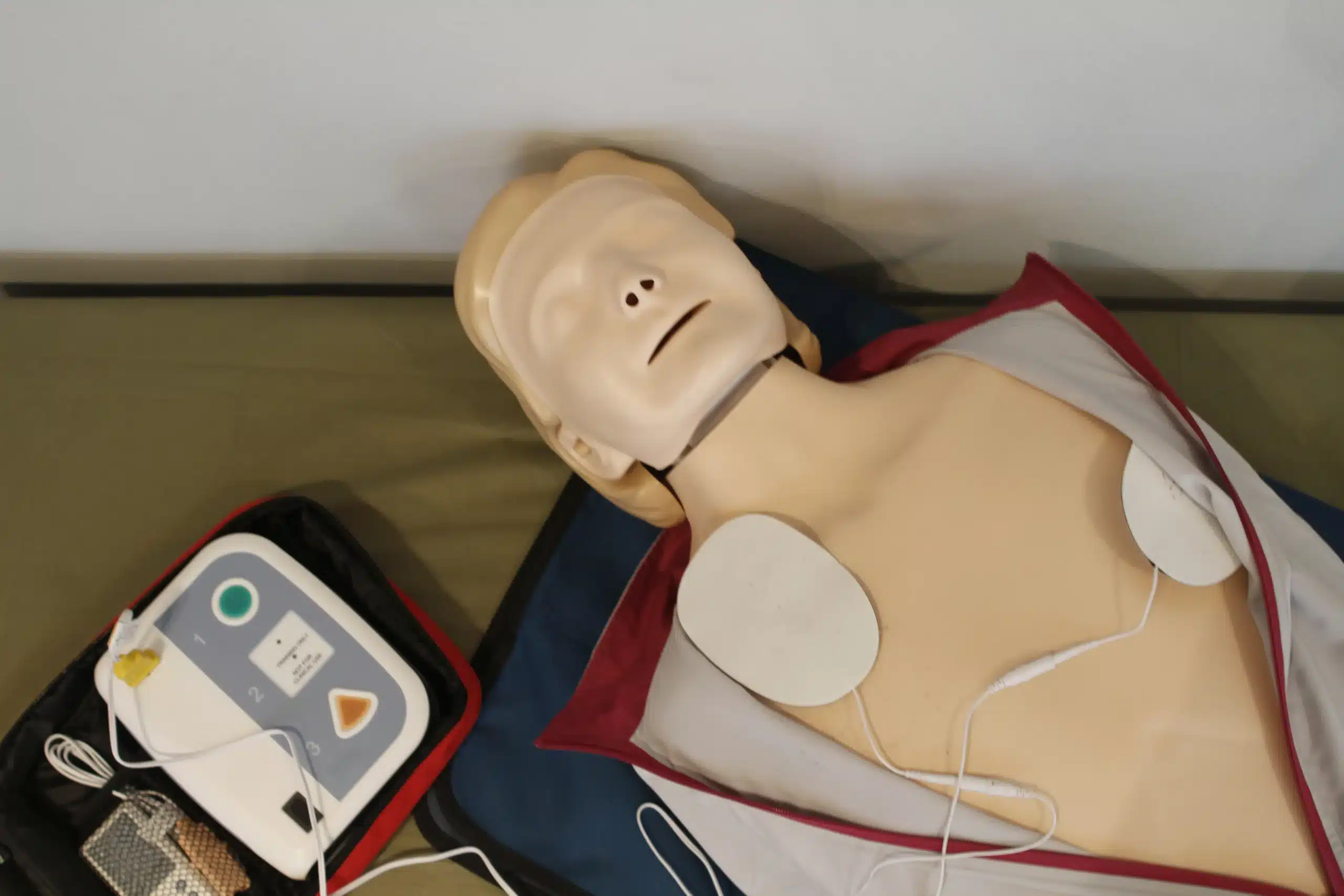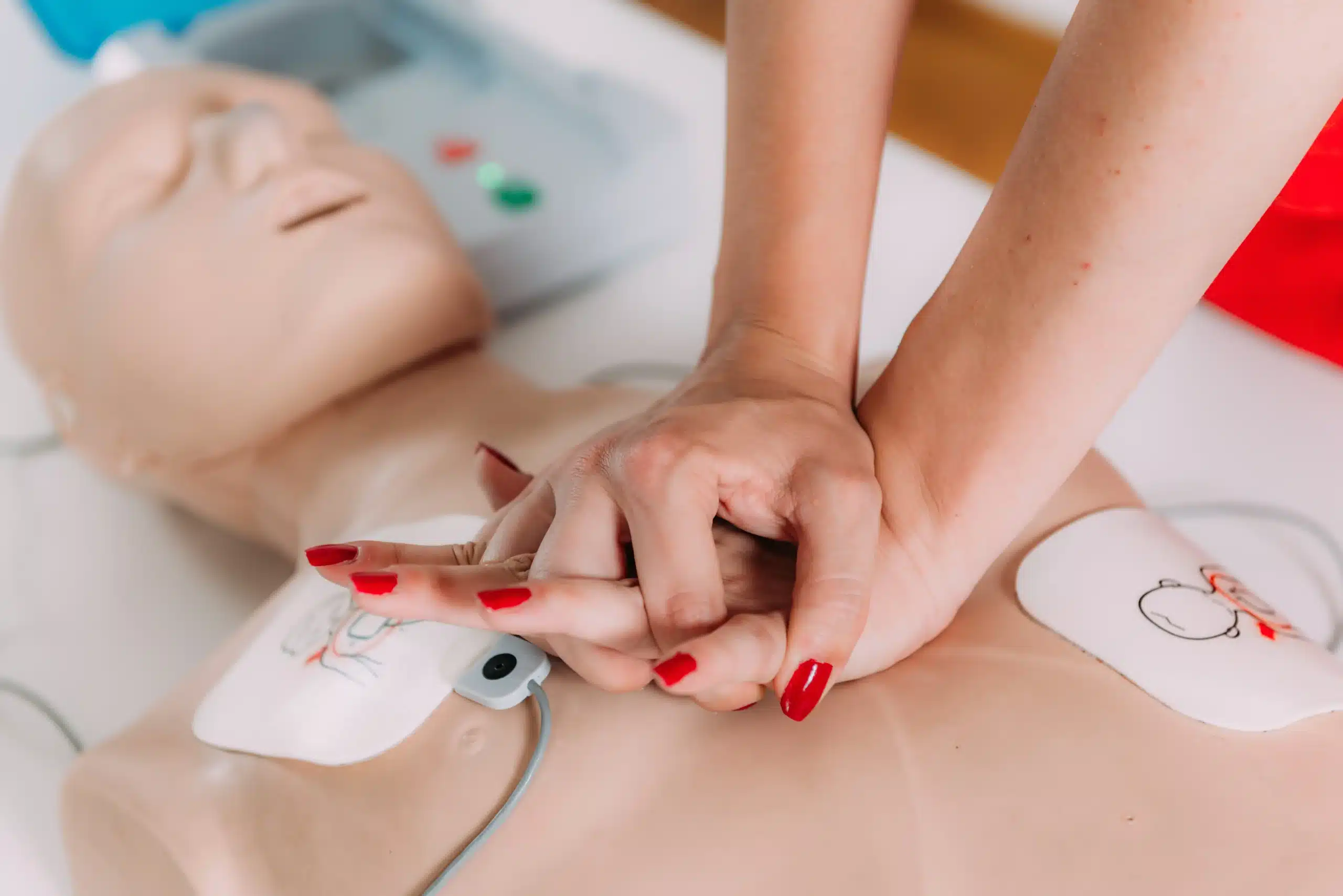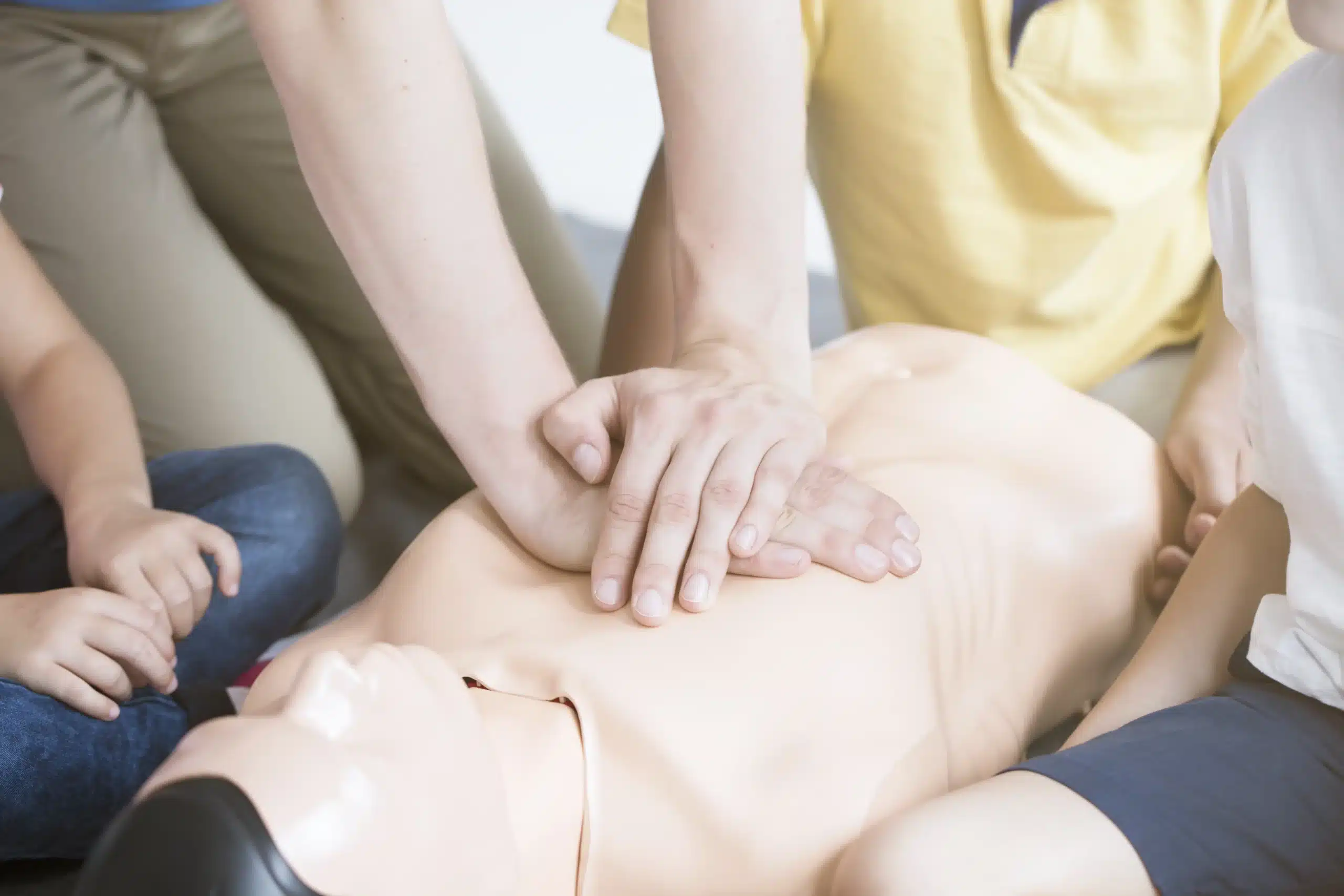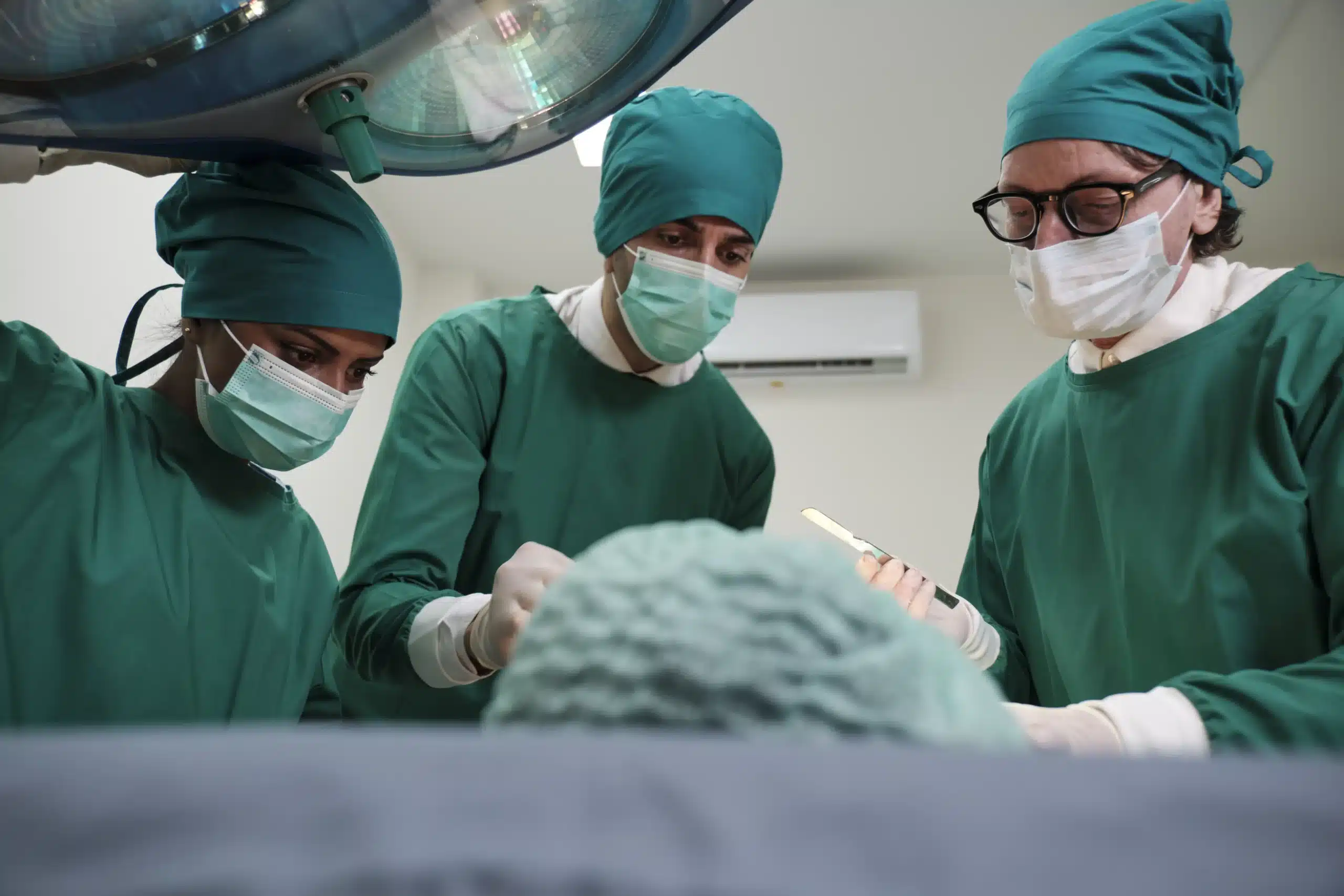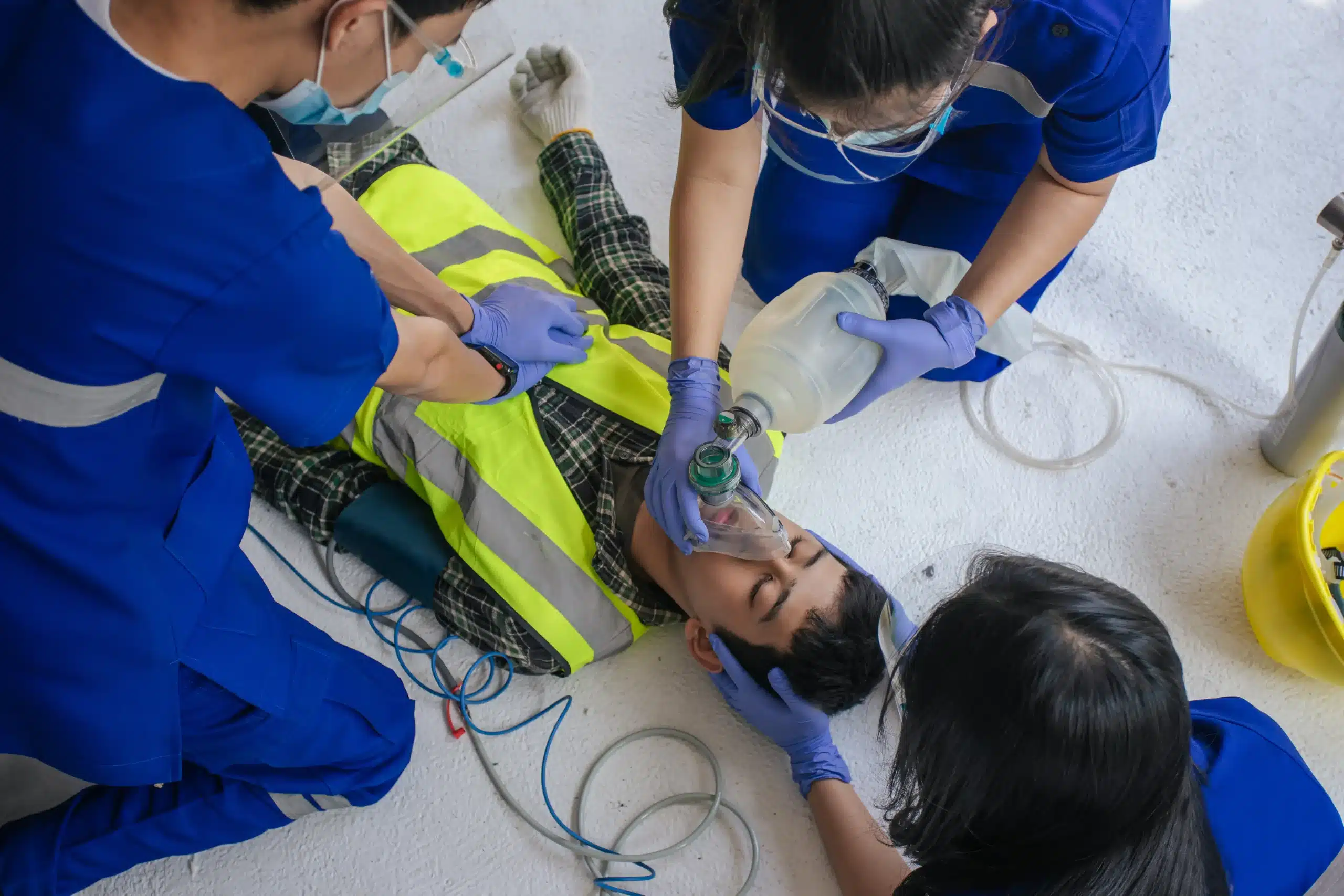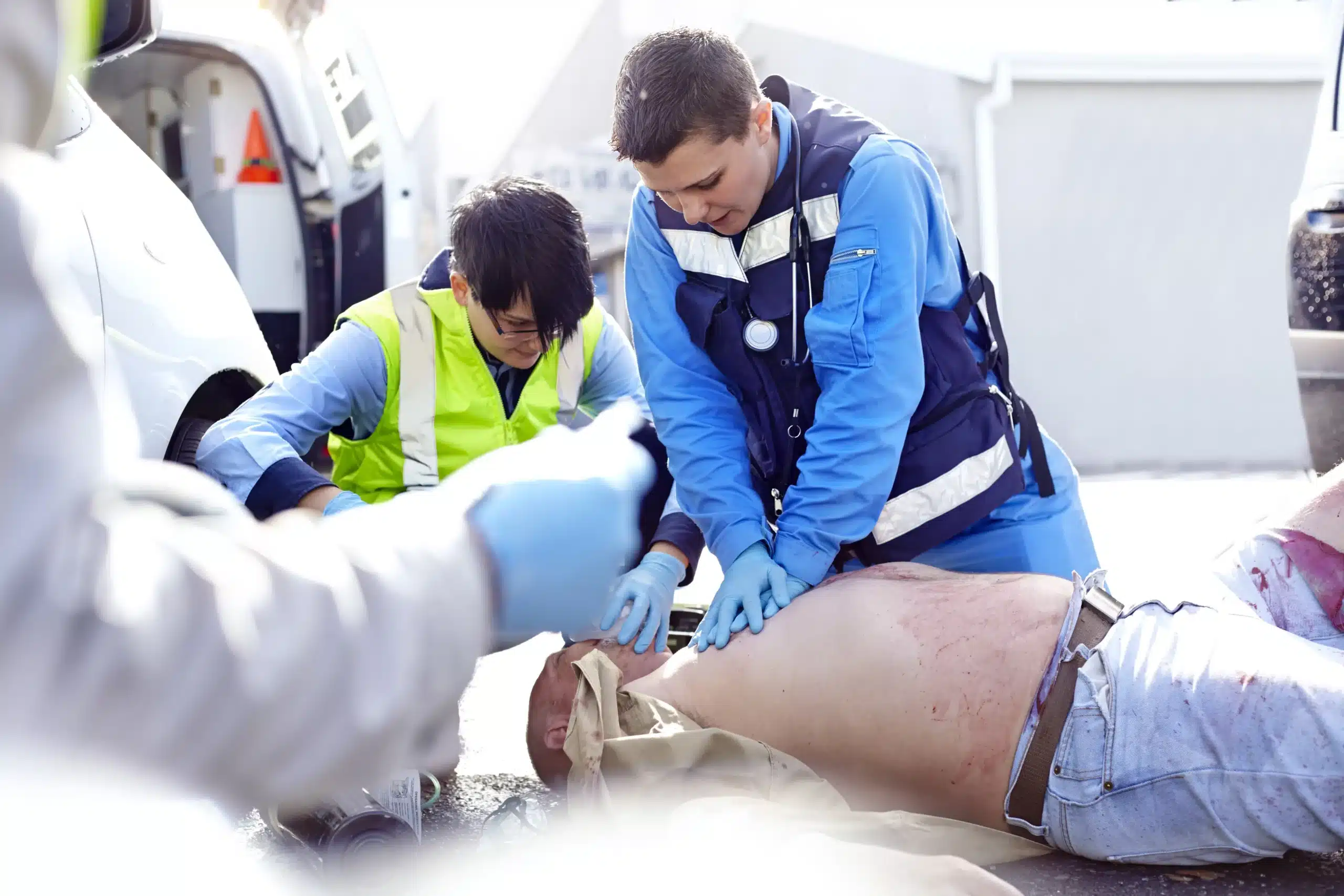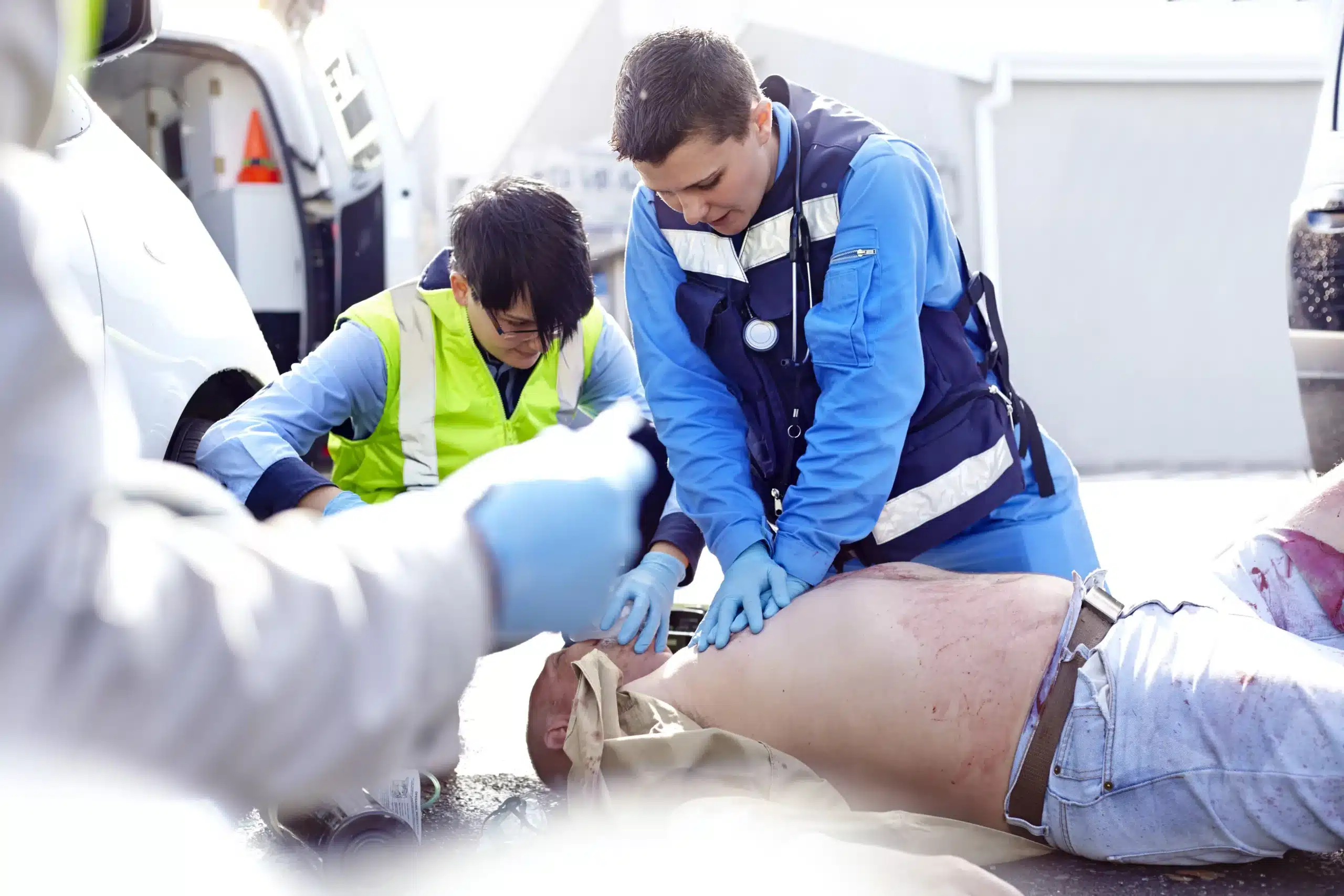Working in healthcare, especially with children, means being prepared for anything. When a child’s life is on the line, you need more than just basic CPR—you need Pediatric Advanced Life Support (PALS) training. This specialized certification equips you with the advanced skills to handle critical pediatric emergencies, from respiratory distress to cardiac events. If you’re a healthcare provider in San Leandro, Union City, or Hayward, finding a reputable PALS certification course is easier than you think. This article will guide you through everything you need to know about pediatric advanced life support in San Leandro, from course content and providers to the career benefits of this vital certification. We’ll explore the key skills PALS covers, where to find training in your area, and how this certification can boost your career.
Key Takeaways
- PALS is essential for effective pediatric emergency response: This specialized training provides healthcare providers with the knowledge and skills to confidently manage life-threatening situations in infants and children, leading to improved patient outcomes.
- Choosing the right PALS course matters: Seek out AHA-certified instructors, hands-on training opportunities, and flexible learning options. Consider factors like course structure, cost, and schedule to find the best fit for your needs.
- PALS certification advances your healthcare career: This credential demonstrates your commitment to high-quality pediatric care, expands job opportunities, and can lead to higher earning potential. Stay current by renewing your certification every two years.
What is Pediatric Advanced Life Support (PALS)?
What is PALS and Why Does It Matter?
Pediatric Advanced Life Support (PALS) is specialized training designed to give healthcare providers the skills they need to respond to life-threatening emergencies in infants and children. Think critical situations: cardiopulmonary arrest, shock, respiratory emergencies. PALS equips medical professionals to act quickly and effectively, directly impacting how well pediatric patients fare in these emergencies. It’s about giving kids the best possible chance in a crisis. For more in-depth information, you can explore resources like ScienceDirect’s overview of PALS. This training is essential for anyone working with young patients in critical care.
Key Skills and Knowledge in PALS
A PALS course focuses on building essential skills and knowledge for managing pediatric emergencies. You’ll learn to assess, recognize, and treat a range of life-threatening conditions, from shock and heart issues to respiratory problems. Beyond the medical procedures, PALS training strengthens crucial skills like critical thinking, problem-solving, and teamwork—all vital in the high-pressure world of emergency medicine. The American Red Cross offers more details on the curriculum and what you can expect to learn. These skills are invaluable for any healthcare provider dedicated to providing the best possible care.
PALS Certification Prerequisites
Before you can sign up for PALS certification, you’ll need a solid foundation in pediatric basic life support (BLS). This prerequisite ensures you’re ready to handle the advanced concepts and techniques covered in the PALS program. The American Red Cross provides clear information on their prerequisites. Having that BLS background sets you up for success in PALS and ensures you have the fundamental skills needed to proceed.
Find PALS Certification in San Leandro
Finding the right PALS certification course can feel overwhelming, but several excellent providers serve San Leandro, Union City, and the surrounding areas. Here are a few options to explore:
Top PALS Course Providers
San Leandro CPR Classes
San Leandro CPR Classes offers AHA-certified PALS courses, along with BLS, ACLS, and CPR/First Aid. They offer daily classes and can even come to your location for group training, making them a convenient choice for busy professionals or organizations.
Safety Training Seminars
Located in the heart of San Leandro, Safety Training Seminars focuses on community safety. They provide comprehensive training programs, including AHA-certified CPR, BLS, ACLS, PALS, and First Aid. Their central location makes them easily accessible.
HeartStart CPR
HeartStart CPR offers PALS certification and recertification classes throughout the Bay Area. Their comprehensive course covers pediatric assessment, respiratory emergencies, vascular access, airway management, pharmacology, algorithms, BLS review, case studies, and teamwork. This breadth of instruction ensures you’ll gain a thorough understanding of pediatric advanced life support.
American Red Cross
The American Red Cross is known for its scientifically rigorous and educationally superior training programs. Their PALS certification course teaches participants how to assess, recognize, and treat life-threatening emergencies in children. The Red Cross is a trusted name in emergency training.
Initial vs. Recertification
Both initial PALS certification and recertification are valid for two years. The initial course typically takes about 12 hours, while the recertification course is shorter, around 7 hours. HeartStart CPR’s website provides details on both options. Knowing the time commitment for each type of course helps you plan accordingly.
Choose Your Learning Format: Online, In-Person, or Hybrid
Many providers now offer blended learning, combining online coursework with in-person skills sessions. This flexible approach lets you learn at your own pace and still get the hands-on training you need. The American Red Cross offers this hybrid format, making it easier to fit PALS certification into a busy schedule. This blended learning style accommodates various learning preferences and schedules.
Course Details: Structure, Costs, and Schedule
This section breaks down the specifics of PALS courses, including what to expect in terms of structure, costs, and scheduling. Understanding these details will help you choose the best course for your needs.
Typical Course Formats and Time Commitments
PALS courses typically involve a blend of online learning and in-person skills practice and testing. The online portion usually takes around 3–4 hours to complete and covers essential concepts like pediatric assessment, basic and advanced life support, and pediatric pharmacology. After finishing the online modules, you’ll schedule a hands-on skills session, which typically lasts 30–40 minutes. This combination allows for flexible learning while ensuring you gain practical experience. Hayward CPR Classes offers courses daily, from 7 am to 6 pm, seven days a week, making it easier to fit training into your busy schedule.
Price Ranges and Discounts
The cost of PALS certification varies. For initial certification, you can expect to pay around $260, while recertification typically costs around $190. Hayward CPR Classes offers competitive pricing at $290, which includes the online course, skills testing, and your certification card. Be sure to check if discounts are available, especially if you’re signing up with a group. Group discounts can make training more affordable for teams or organizations. We guarantee the lowest prices in Alameda County.
Find Upcoming Courses and Enroll
Finding a PALS course that fits your schedule is straightforward. Visit the Hayward CPR Classes website to view the course calendar and available dates. You can also contact us directly to discuss scheduling options and ask any questions you may have. We’re here to help you find the perfect class time and location. We serve Hayward, Union City, and San Leandro, CA.
Overcome Common PALS Certification Challenges
One common challenge for healthcare providers is balancing work schedules with training commitments. The flexible online component of many PALS courses helps address this issue, allowing you to learn at your own pace and convenience. Online PALS courses also make renewing your certification easier. If you anticipate scheduling conflicts, consider discussing options with your employer or exploring online learning formats to make the process smoother. Remember, staying certified is crucial for providing the best possible care, so prioritizing your PALS training is a worthwhile investment.
Meet Your PALS Instructors: Qualifications and Course Quality
Choosing the right PALS course isn’t just about convenience; it’s about making sure you’re getting high-quality training from instructors who know their stuff. This section will help you understand what to look for and how to make the most of your learning experience.
Instructor Credentials and Experience
Look for PALS courses taught by American Heart Association (AHA) certified instructors. Experienced instructors bring a wealth of practical knowledge to the classroom, making the learning experience more engaging and insightful. For example, both San Leandro CPR Classes and Safety Training Seminars offer AHA-certified PALS instruction. Knowing your instructors are certified by a reputable organization like the AHA gives you confidence in the quality of the training you’ll receive.
Choose a High-Quality PALS Course
A high-quality PALS course will cover the most up-to-date AHA guidelines and recommendations. Consider programs that use the AHA’s RQI program, which blends online learning with in-person skills practice. This flexible approach lets you learn at your own speed and then demonstrate your skills in a real-world setting. Instructor-led training is another great option, offering direct interaction with instructors and opportunities for immediate feedback.
Hands-On Practice and Skills Testing
PALS certification isn’t just about the textbook; it’s about developing practical skills you can use in an emergency. A good PALS course will prioritize hands-on practice with equipment like voice-assisted manikins (VAMs). This kind of practice lets you apply what you’ve learned in a simulated environment, building your confidence and improving your proficiency. The skills testing component, often using VAMs, ensures you can perform the necessary procedures effectively under pressure. After all, these skills can make all the difference in a pediatric emergency.
Get Certified: Benefits of PALS for Your Career
So, you’re considering PALS certification? Smart move. Whether you’re just starting out in healthcare or you’re a seasoned professional, having PALS under your belt opens doors and provides a real advantage. This certification shows your commitment to providing high-quality care for young patients, and that’s something employers value.
Improve Your Pediatric Emergency Response Skills
PALS training gives you the tools to handle pediatric emergencies with confidence. You’ll learn effective techniques and best practices for responding to critical situations involving infants and children. This translates to better outcomes and improved patient care. Think of it as a crucial upgrade to your skillset, empowering you to make a real difference when it matters most. San Leandro CPR Classes offers comprehensive PALS training that covers everything from basic life support to advanced airway management.
Advance Your Healthcare Career
A PALS certification isn’t just a piece of paper; it’s a significant career booster. It shows potential employers you’re dedicated to pediatric care and have invested in specialized training. This can lead to more job opportunities, promotions, and even higher earning potential. In a competitive healthcare landscape, PALS sets you apart and demonstrates your commitment to excellence. Learn more about how PALS can improve your career prospects.
Meet Job Requirements
Many healthcare facilities require PALS certification for any staff member working with children. This isn’t just a recommendation; it’s often a mandatory requirement for employment. Earning your PALS certification ensures you meet these crucial job requirements and keeps you eligible for a wider range of positions. Safety Training Seminars offers PALS certification courses that meet the standards set by the American Heart Association.
Renew Your Certification and Continue Learning
PALS certification is typically valid for two years. Staying current with the latest guidelines and techniques is essential in healthcare. Renewing your certification ensures you’re always up-to-date. The renewal process also offers a chance to refresh your knowledge and refine your skills. The American Red Cross offers resources and courses for both initial certification and recertification, allowing you to maintain your expertise in pediatric advanced life support. They even offer streamlined options for experienced providers to renew their certifications efficiently.
Related Articles
- PALS Certification in Union City: Your Guide to Courses & Providers – Hayward CPR Classes
- Online PALS Classes in San Leandro: Your Complete Guide – Hayward CPR Classes
- AHA PALS Classes in Hayward, CA – Hayward CPR Classes
- BLS ACLS PALS Training in Hayward: A Complete Guide – Hayward CPR Classes
- CPR Training in San Leandro: A Complete Guide
Frequently Asked Questions
What’s the difference between PALS and BLS?
BLS (Basic Life Support) teaches fundamental life-saving techniques for anyone, while PALS (Pediatric Advanced Life Support) builds upon that foundation with specialized training for healthcare providers treating infants and children. PALS delves into more complex medical emergencies and advanced life support techniques specific to pediatric patients. Think of BLS as the essential first step, and PALS as the specialized training that equips you to handle more critical pediatric situations.
How long does PALS certification last, and how do I renew it?
PALS certification is valid for two years. To renew, you’ll need to take a PALS recertification course before your current certification expires. This refresher course covers the latest guidelines and techniques, ensuring your skills and knowledge remain current. Many providers offer streamlined recertification options for experienced professionals.
What if I have a busy schedule and can’t attend a traditional in-person PALS course?
Many PALS providers now offer blended learning options, combining online coursework with shorter, in-person skills sessions. This flexible format allows you to complete the theoretical portion at your own pace, fitting it around your work or personal commitments. You’ll still get the essential hands-on training and skills testing, but with added convenience.
How much does PALS certification cost, and are there any discounts available?
The cost of PALS certification varies depending on the provider and whether you’re pursuing initial certification or recertification. Initial certification tends to be slightly more expensive than recertification. Check with your chosen provider for specific pricing. Many providers offer discounts for groups, so if you’re registering with colleagues or as part of an organization, it’s worth inquiring about potential cost savings.
Why is PALS certification important for my healthcare career?
PALS certification demonstrates your commitment to providing the highest quality care for young patients. It’s often a required qualification for positions involving pediatric care and can significantly enhance your career prospects. Having PALS on your resume sets you apart from other candidates and opens doors to more specialized roles and advancement opportunities. It also shows employers you’re dedicated to staying current with the latest life-saving techniques.
